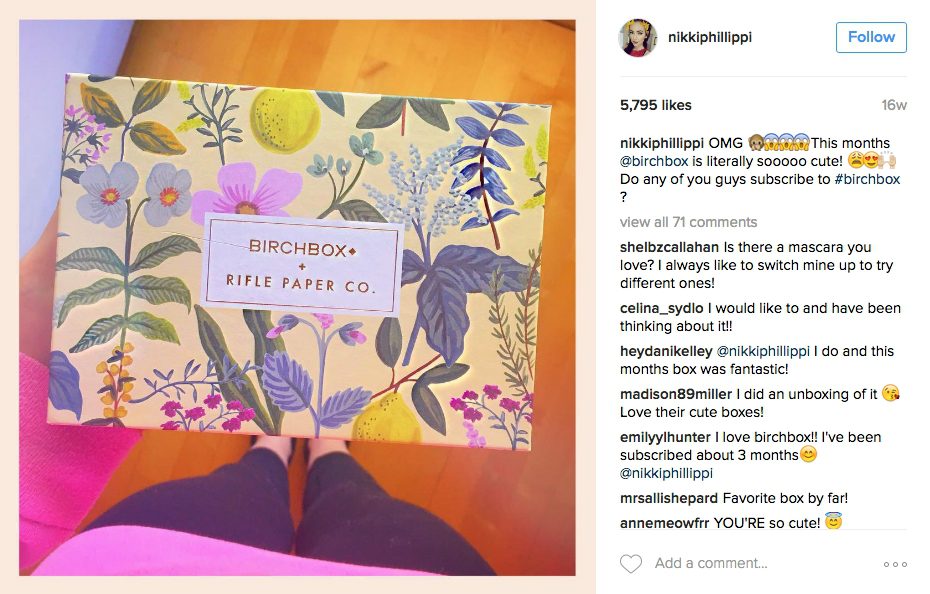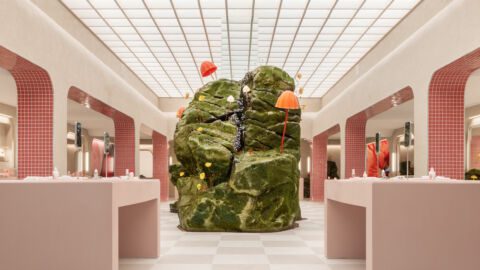Influencer marketing has been a core part of the Birchbox business strategy since the beauty subscription service launched in September 2010. In fact, much of its initial growth was the result of YouTube vloggers sharing and unboxing their Birchboxes on their channels, which encouraged others to do the same.
But in just five years, influencers have grown into a powerful marketing tool. In 2015, they helped propel the launch of Birchbox’s new cosmetics brand 2.5X over the initial sales plan — all in less than one week’s time.
“When we first launched in September 2010, YouTubers weren’t what they are today and influencer marketing wasn’t at all what it is today,” said Brittany Tomkiewicz, Senior Manager of Acquisition Marketing at Birchbox, in an interview with Retail TouchPoints. “A lot of these YouTubers were signing up for Birchbox and were sharing their boxes. We saw this explosion of organic content from influencers early on in our lifecycle.”
Fast forward to today, and Birchbox has established relationships with a variety of influencers on numerous campaigns throughout the years. Some examples include:
- Curating wish lists on the Birchbox web site during the holidays and Mother’s Day;
- Tapping influencers to host events around the country and invite their followers;
- Asking influencers to spotlight Birchbox on their channels; and
- Curating color collections for the company’s own makeup brand.
Birchbox’s relationships with influencers grew organically for several years, without many tools to measure the impact of these efforts. In fact, it wasn’t until 2014 that the company began tracking the success of its influencer campaigns with affiliate marketing network Rakuten.
“Rakuten makes everything so easy to track,” said Tomkiewicz. “Anytime we have a big campaign, we work with the influencer through the Rakuten platform, so that we can accurately track traffic and conversion and see what products are selling well. That way, we can bring that information back to the influencer to help develop a future strategy with them.”
Leveraging Influencers Provides Both Immediate And Long-Term Benefits
Birchbox’s influencer marketing programs have brought the company much success, especially when the brand launched its own makeup collection, Love of Color, in October 2015. Birchbox leveraged an influencer to help its team develop the shades of the first products and to promote the new collection.
The results were immediate: Love of Color launched on Oct. 16, 2015, and by Oct. 21, 2015, it was 258% ahead of its sales plan for that year. Tomkiewicz said the brand itself jumped up to one of Birchbox’s top 15 makeup brands of 2015, even with only two and a half months left in the calendar year. Additionally, with Rakuten’s tracking abilities, the company found that 35% of the people who purchased Love of Color were brand-new customers.
For Birchbox, influencer marketing seems to be the gift that keeps on giving. Tomkiewicz emphasized that the company’s influencer content has been evergreen, and provides long-term benefits.
“We’re still seeing traffic and conversion from last year,” she said. “Whatever the influencers post on YouTube or their blogs, new followers will go to the archive and come across the posts they did for Birchbox. We’ll still see people convert off of posts from campaigns that were executed a year before. That positively impacts our marketing spend ROI just because it has longevity.”
Birchbox Influencers Are Existing Brand Advocates
When developing an influencer marketing program, it is important for a brand to stick to its roots and leverage people who are fans, long before they sign a contract. According to Tomkiewicz, Birchbox looks for existing brand advocates to become influencers.
“A lot of the people we’ve worked with have been people that have talked about Birchbox, expressed interest in the brand and fallen in love with our business proposition,” she said. “The first step in the process of evaluating an influencer starts there. An authentic and true relationship between us and the influencer is really essential in the success of the campaign.”
Another criterion Birchbox looks for in an influencer is someone who represents the company’s target audience, which surprisingly is not as obsessed with beauty as one would assume.
“The unique differentiator for Birchbox is that we go after the 80% of the beauty community that isn’t super obsessed [with beauty]; we’re looking at the people who are a little timid and aren’t as familiar with it,” said Tomkiewicz. “So when we’re picking influencers, it’s important that they are representative of that girl. We look for people with a range of interests, who have real stories and advice, and a genuine relationship with beauty that isn’t your norm.”













